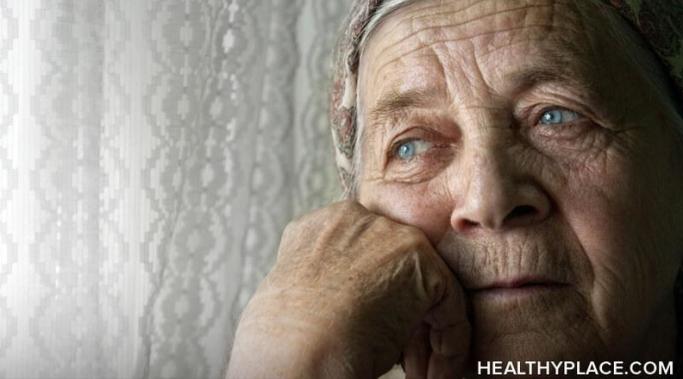Blogs
Last week I wrote about how embarrassment can trigger clarity and ADHD hyperfocus. I also wrote about how trauma can cause the same reaction. These shocks to our system can lift most of us into a higher state of awareness. Think of how lucky you are to have ADHD. If you're like me, embarrassment--and hyperfocus--occurs weekly as I blunder about my life being embarrassed by my boneheaded actions.
But how long does the hyperfocus last for you? Are you able to channel ADHD hyperfocus to move your life and projects forward, or is it just another strong emotion you experience then instantly forget as you
Ohmigosh! iOS5 is available for download now? Clickity click, man!
Sometimes strong emotions like embarrassment can give an Adult with ADHD hyperfocus and clarity. Learning to take advantage of that clarity can turn ADHD from a downside into an upside. After all, think of all the opportunities you'll have to beclown yourself in life!
"If you need brain surgery it’s almost always a good idea to involve other people." Taz Mopula
The first time I heard the term “self-medication” I laughed out loud. In searching for an analogy one thinks immediately of the old adage – the lawyer who defends himself has a fool for a client. But that’s when the stakes are low, going free or going to jail. How about when the stakes are high? Sanity versus insanity? Life versus death?
Jean Paul Sartre, a very clever fellow, used to play Russian roulette because he was bored. Well, self-medication is like playing Russian roulette with one big difference, all the gun’s chambers contain live ammo.
Self-medication – (the term itself is preposterous) - fits nicely into the insufferable arrogance and egotism of mania – as if to say – I can manage this little spot of bother myself with nothing more complicated than some garden-variety drugs. I remember it all too vividly – “throwing gasoline on a fire”.
Last night, Ben came home from an "Anonymous" meeting and shared with me that there had been an unexpected discussion about mental illness, and that (in his words) "about 90% of the people in the room admitted that they have one." I wanted to press for more details - you bet I did - but I've learned not to push the learning. The fact that he chose to tell me this much - without, of course, revealing names or details - seems like a good thing. Did he participate? Did he admit he has an illness, too? Did he feel supported in this group of peers? I didn't dare ask. But I did wonder.
Many times I've complained that my family doesn't really understand mental illness. They don't see the difference between depression and being sad, and even those who visited me in the hospital separated my condition from the severity of my surroundings. As hard as I've tried to get my relations to understand my illness, it's even more difficult to get them to see the signs of severe depression in others.
Most people I know with a mental illness try very hard to get better. They look for sources of help, support and information. Most people I know don't sit around waiting for someone to save them.
But then there are the people who do.
There are the people who whine and complain that no one will help them and yet turn down help or refuse to look for it. There are the people who kvetch that there is no support available to them in spite of the fact that the world is drowning in helplines available 24-hours-a-day.
In short, people think mental health services should be brought to them on a silver platter - and then be spoon-fed.
Mental illness is an isolating and lonely disease. This is not to say that everyone diagnosed with a mental illness feels alone in their struggle, but many of us do, most of us do at some point in our recovery. Because I was diagnosed with bipolar disorder at the age of twelve, I have often felt lonely and as if very few people could really understand me. And now, twelve years later, I still struggle with a feeling that I am alone in my illness, that despite a concerted effort on the behalf of those who love me, they cannot really understand the struggle. These thoughts, these feelings, are normal in connection to mental illness, because by nature, mental illness is a lonely and isolating disease.
When I went into residential addiction treatment, I really enjoyed the variety of experiences, backgrounds, ages, and diversity within the group. It helped me feel that no matter how different we were, we had critical things in common that tied us and made us a small community of support to one another. I have been thinking a lot about the importance of a sense of belonging to a community in recovery and life, as well as the benefits gained within residential treatment that helps long-term recovery success.
Some of you find it difficult to celebrate yourselves for the wonderful person you are. Perhaps you can't remember one single good thing about you that hasn't been made fun of, undermined, or turned into a weapon by your abuser. It is difficult to keep a positive self-image let alone cultivate a positive attitude when someone else attempts to squash you like a crunchy cream-centered bug every time you get "too happy".
In time, you may begin to feel like the fight for your Self is futile. A bit down the road, you may wonder why you fought at all. You think that you are not worth the fight - it's easier to become what your abuser wants you to be than to be who you want to be or become.
Monday morning, I met with Bob's teacher, principal, and school counselor. The district Behavior Specialist was supposed to be there, as well, but (of course) was a no-show. The purpose of this meeting--to develop a "plan" for Bob, my 10 year old son with bipolar disorder.
I'm still not sure the meeting accomplished anything, short of making the people in charge feel like they have some semblance of control where no control can be had.









I read this book many years ago, just as I was entering the turmoil of remembering, questioning and doubting myself all the way (as I'd been covertly taught over a lifetime). I happened to mention to my two sisters one day, "This is so strange but I've been diagnosed with PTSD." Both my sisters surprised me by responding, "Me too."
THEN I happened upon an old book manuscript that my now deceased father had written (not published), wherein the protagonist was obviously based upon himself and he rapes his "fiancee," who had my unusual name. Yes, truly.
Then I made myself look at the peculiar memory I always had where he violently threatened me but somehow I had never been able to recall what came before or after the episode. I had to admit that was a bit strange.
The pressures and powers to forget sexual abuse are great, both in family and society. In fact, I've come to the sad conclusion that the vast majority of survivors never really deal with their childhood wounds (a neglect for which there are always repercussions).
To critique an encouragement of people trusting their intuition in such matters is really getting the prescription dangerously wrong.
Thanks!